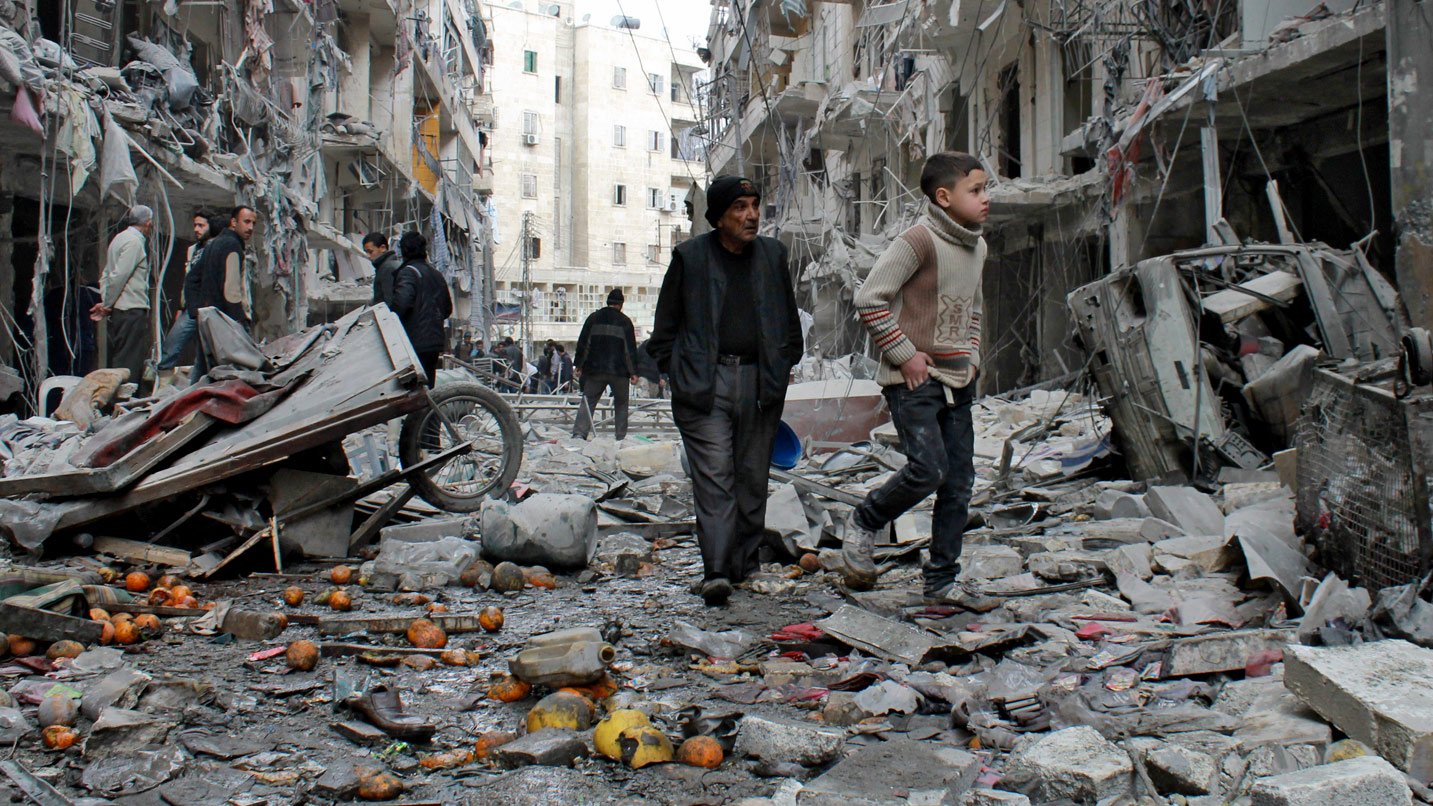An independent Kurdistan would create a secular, pluralistic ally, and be a humanistic victory in protecting the rights of the Kurdish people
Following the liberation of Mosul from the Islamic State (ISIS) in July, the push for independence once again surged in Iraqi Kurdistan. Shortly after the liberation of Mosul, Kurdistan Regional Government (KRG) President Masoud Barzani announced the referendum for the 25th September. In just over a week, Iraqi Kurdistan will go to the polls to vote on a historic independence referendum.
This is the latest, but by no means the first attempt by the KRG to achieve their goal of an independent Kurdish state. In various forms, the Kurdish people have been trying for nearly a century. If this referendum were to pass, President Barzani would begin the process of turning Iraqi Kurdistan from an autonomous region to an independent state. This is despite the Iraqi government already going on record saying that the independence vote would not be recognised. The Iraqi Supreme Court has even taken the step of ordering the suspension of the independence referendum, just days out from the vote. To understand the context of the referendum and to understand the importance of independence for the Kurdish people, a brief history lesson is required.
Iraqi Kurdistan and the KRG – A Brief History Lesson
Toward the end of World War One, the British and French, along with Russia, devised a plan to partition the Ottoman Arabic states of the Middle East following the fall of the Ottoman Empire. The plan, known as the Sykes-Picot agreement, named after British diplomat Mark Sykes and French diplomat Francois Georges-Picot would divide up the Middle East along the borders that remain to this day. Though multiple new nations were created, a state for the Kurdish people was not among these. Instead, Kurdish people were divided mostly within Iraq, Syria, Turkey and Iran. Within these borders, the Kurdish people had no autonomy and were routinely repressed by the rulers of these states.
The Kurdish population of Iraq, under Iraqi rule, were subject to all manner of repression and abuse. This peaked during the rule of Saddam Hussein’s Baathist regime. During the Anfal (‘Spoils’, also the name of the eighth Sura or chapter in the Qur’an) campaign of 1987-1989, estimates of between 50,000-100,000 Kurds were killed by Hussein’s regime, according to the Human Rights Watch. Kurdish sources estimate the figure to be even higher, up to 180,000 in some estimates. These actions are a large driver of Kurdish resentment toward the Iraqi state to this day, and one of the main reasons for desiring independence.

Following the Gulf War of 1990-1991, Iraqi Kurdistan, with the help of the United States, was able to gain a degree of autonomy. The north-east region of Iraq became a federal Kurdish region within the Iraqi state. Throughout its history, the Kurds have pushed for independence many times. The movement for independence has grown in the years following the downfall of Saddam Hussein. The last referendum on Kurdish independence was held back in 2005. The results of this referendum were overwhelming, with 98% of respondents voting in favour of an independent Kurdish state. This vote was informal and non-binding, yet showed even then the desire by the Kurdish people for independence.
International reaction to the referendum
Many nations, including the United States, are wary of the Kurdish vote for independence. One of the more popular arguments against the vote is that it is not the right time. It is argued that other priorities, such as the ongoing fight against the Islamic State (ISIS) should be ahead of the independence vote. When Iraqi lawmakers voted against the independence referendum recently, the fight against ISIS was a main reason cited. Countries immediately neighbouring Iraq, including Turkey, Syria and Iran have also argued against the referendum.
To date, only one nation, Israel, has come out and openly supported the Kurdish campaign for independence. Israeli Prime Minister Benjamin Netanyahu stated that Israel “supports the legitimate efforts of the Kurdish people to achieve a state of their own.” Israel’s Justice Minister, Ayelet Shaked, went ever further, stating that a Kurdish state was in the interests of America as well as Israel, an interest which America should take seriously. Israel’s strong stance in favour of Kurdistan against the overall opinions of the international community is somewhat surprising. In this commentator’s view, however, it is the correct position.

The case for an independent Kurdistan
There are many very good reasons to support Kurdish independence, particularly from a progressive, internationalist perspective. In stark contrast to the vast majority of its neighbours in the region, Kurdistan is a relatively secular, pluralistic society. Throughout the fight against ISIS, the Iraqi Kurds and their fighting force, the famed Peshmerga, have proven to be a reliable military partner. Kurdish forces have been instrumental in the retaking of many key cities, including Mosul and Kirkuk within Iraq.
Although the Baathist regime of Saddam Hussein is gone, there are still sectarian divides within Iraq. An independent Kurdish state would go a considerable way to addressing this issue, which has been longstanding in Iraq ever since the Sykes-Picot agreement. The Iraqi state, at present, is one which is not functioning effectively. The question of Kurdish independence is one which is not going to go away. A federal Kurdish region within the current borders is not an adequate solution. The Iraqi government has, in recent years withheld much-needed payments to the Kurdish region, especially for military supplies and weaponry during the campaign against ISIS. Despite the Kurdish Peshmerga doing the bulk of the fighting on the ground, they were poorly equipped, with the Iraqi army being much more well armed. Benefits were also paid to Iraqi veterans of the war, but not to the Kurdish Peshmerga.
It is important to remember that the Kurdish people have played an outsized role in combating ISIS since they took vast swathes of Iraqi and Syrian territory in 2014. It was, after all, the Kurds who took the fight to ISIS on the ground in Iraq, as the Iraqi army infamously fled the advancing ISIS fighting forces. Apart from military contributions, the Kurds have made other important contributions to regional stability. The Kurdish region has played host to more than a million refugees from Syria since the beginning of the war against ISIS. Iraqi Kurdistan has also made concerted efforts to maintain good relations with regional and international partners, even though these efforts are often not reciprocated.
Independence will of course not be without its problems. For one, Iraqi Kurdistan is in a precarious economic position currently. Public servants have not been paid their salaries in months. The Kurdish economy is heavily dependent on oil, especially from the disputed city of Kirkuk. This city is claimed by both Baghdad and Erbil as being part of Iraq and the Kurdish region, respectively. Much of the dispute over the independence vote and the conditions for Kurdish independence rest on which side controls this city. Without this city, Kurdistan’s economy would have considerable more difficulty adjusting to life as an independent nation. However, being an independent state would also be advantageous for the Kurds in terms of building their own economy in some ways. For one, they would have control over trade and be able to negotiate trade deals as they pleased with other nations.
All things considered, the international community should follow in the footsteps of Israel by recognising and supporting Kurdistan’s vote for independence. There are many practical reasons for doing so, with Kurdistan proving itself a worthy partner and ally on military and security issues, among others, particularly in the last few years. There is also a strong moral case for a Kurdish state. In contrast to most other nations in the region, Iraqi Kurdistan is secular and pluralistic. It therefore makes sense for Western nations to back Iraqi Kurdistan’s push for independence and finally see the reality of an independent Kurdish state.







Article Discussion